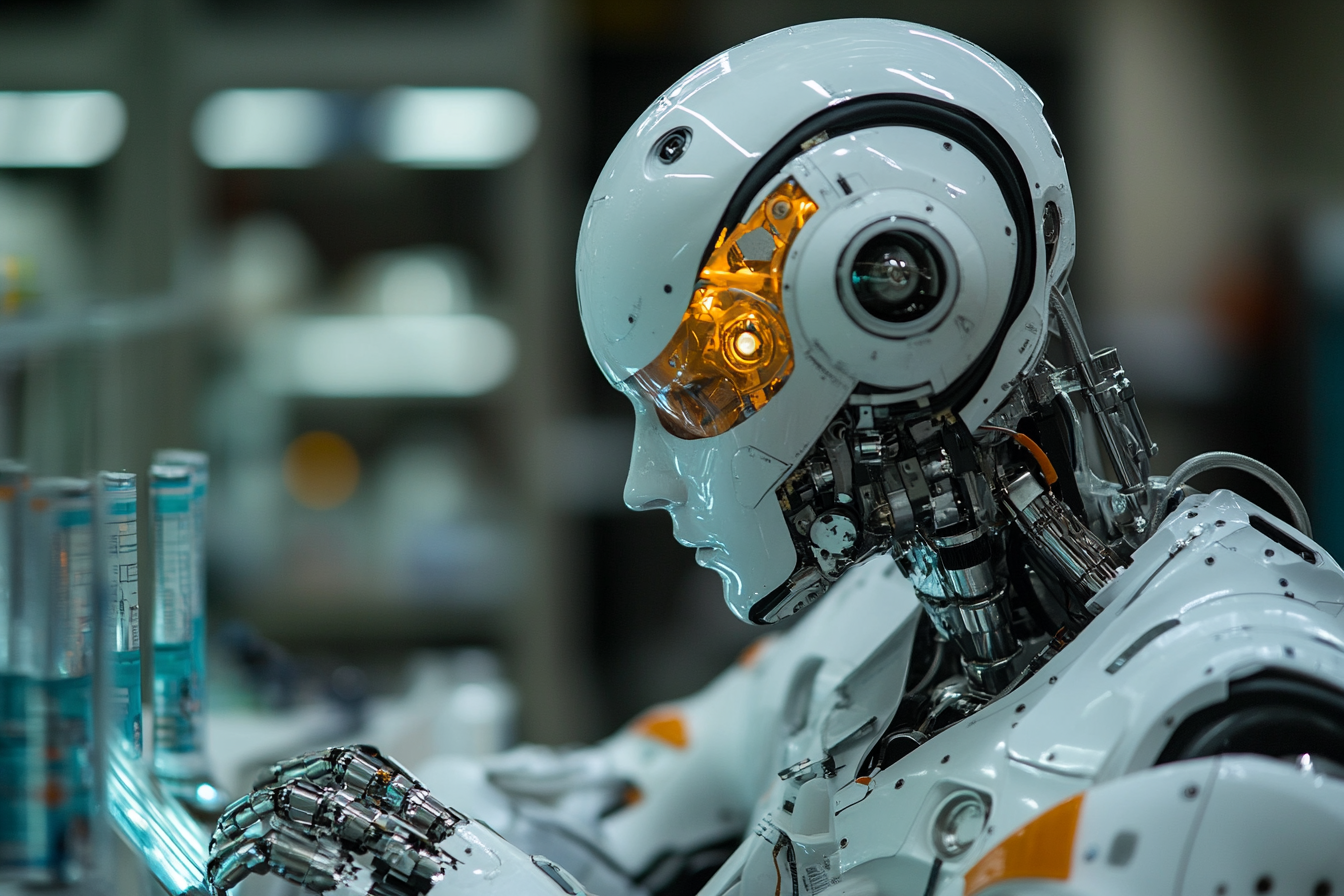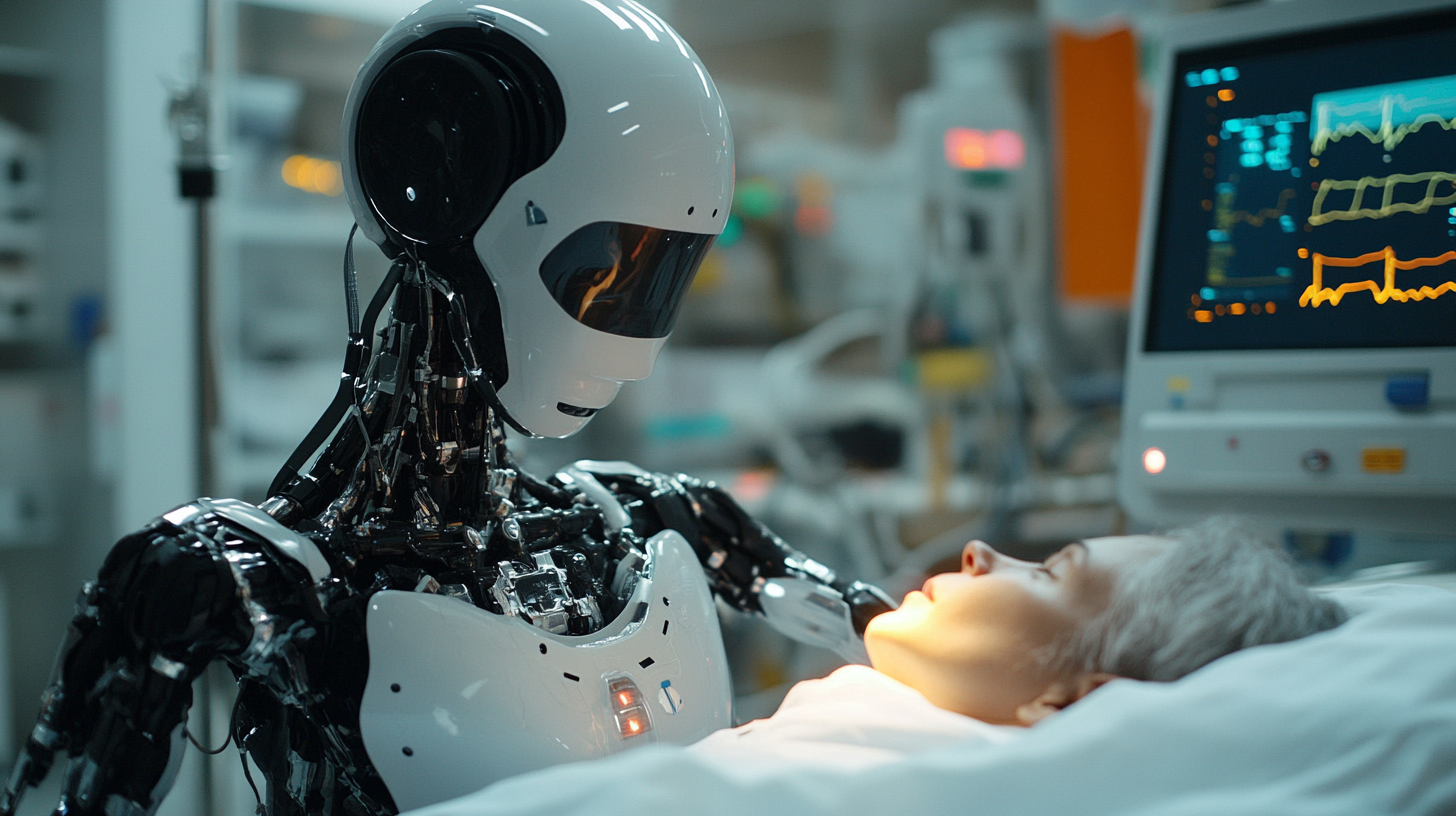AI for Scientific Discovery- January 2025 Research
Artificial intelligence (AI) is rapidly transforming various aspects of our lives, and scientific discovery is no exception.
From accelerating the development of new drugs and materials to improving our understanding of climate change, AI is changing how we conduct research and make ground-breaking discoveries.
This article explores the diverse ways AI is revolutionizing scientific discovery and its potential to reshape the future of research.
Listen to Podcast
AI’s Expanding Role in Scientific Research
AI is being utilized in several ways to accelerate scientific discovery across various disciplines. Scientists are leveraging deep learning, generative AI, and other foundation models to mine scientific literature, brainstorm new hypotheses, and conduct experiments with increased efficiency and accuracy. AI is also being used to analyze images of cells, revealing information that may not be visible to the human eye. This ability to analyze vast amounts of data and identify patterns is transforming research in fields like astronomy, chemistry, neuroscience, biotechnology, and public health.
AI is now further accelerating directed evolution. Machine learning models trained on tested variants can predict good candidates for further exploration, significantly reducing the experimental burden. This is particularly valuable in chemistry and materials science, where the discovery process for new medicines, agrochemicals, and everyday materials involves conceiving reactions or materials, synthesizing them, and testing or characterizing them in the laboratory. AI can speed up this exploration and design process, enabling autonomous high-throughput synthesis and rapid characterization.
AI in Data Analysis and Hypothesis Generation
One of AI’s most significant contributions to scientific research is its ability to analyze vast datasets quickly and accurately. Traditional data analysis methods can be time-consuming and prone to human error, but AI algorithms can process and interpret complex datasets, identifying patterns and correlations that might be missed by human researchers. This capability has been particularly valuable in fields like genomics, where AI helps analyze massive genomic datasets to identify genetic markers associated with diseases and advance personalized medicine.
AI is not only revolutionizing data analysis but also playing a crucial role in hypothesis generation. AI algorithms can analyze existing data, identify potential research topics, and even generate new hypotheses for further study. This accelerates scientific progress and encourages researchers to explore novel avenues of investigation. AI tools can rapidly analyze vast amounts of qualitative data, presenting patterns and correlations that might go unnoticed by human researchers. This integration of AI tools into hypothesis generation bridges the gap between data collection and actionable insights.
Furthermore, AI can serve as an “artificial muse,” a source of original ideas, by detecting anomalies or finding patterns in large collections of data. The way AI solves problems can be studied for insights into new ways of thinking about a topic, inspiring new research directions and approaches.
AI Applications in Specific Fields
AI is making significant contributions to various scientific disciplines, transforming how research is conducted and accelerating the pace of discovery. Let’s explore some of the key applications of AI in specific fields:
Medicine:
AI is revolutionizing research in medicine in several ways. AI systems can analyze medical imaging, such as X-rays, MRIs, and CT scans, with a level of precision that rivals human experts, leading to earlier and more accurate diagnoses. AI is also being used to accelerate the drug discovery process by analyzing large chemical databases, predicting the efficacy of therapeutic candidates, and designing molecules with desired features.
This has the potential to significantly reduce the time and cost associated with developing new drugs and therapies. The impact of AI on healthcare is predicted to be even more significant than that of electricity, the computer, or the internet. This highlights the transformative potential of AI in healthcare, with applications ranging from personalized treatment plans to virtual health assistants available 24/7.
AI in Drug Discovery
AI is being applied to various stages of drug discovery, including target identification, compound screening, and clinical trial design. For example, AI algorithms can analyze large-scale genomic data to identify potential drug targets and predict drug effectiveness. AI can also assist in identifying genetic biomarkers for disease diagnosis and prognosis.
In target identification and mechanism-of-action (MOA) delivery, AI applications are becoming increasingly important. AI can help identify novel targets, such as a TNIK inhibitor, and repurpose existing products for new indications. For example, a knowledge graph was used to identify the rheumatoid arthritis drug baricitinib as a potential treatment for COVID-19.
AI is also enhancing clinical trial design by improving patient stratification and predicting drug bioactivity. AI algorithms can analyze patient data to identify subgroups that are most likely to benefit from a particular treatment, leading to more efficient and effective clinical trials.
Materials Science
AI is transforming the field of materials science by accelerating the design and discovery of new materials with customized properties. AI algorithms can analyze massive datasets, identify patterns, and generate predictions about material behavior at the atomic level. This enables researchers to design materials with specific properties tailored to particular applications, such as lighter and more durable materials for aerospace or more efficient materials for renewable energy technologies.
This shift from experimentation to prediction is a significant advancement in materials science. By using AI, researchers can now predict the properties of materials before they are ever synthesized in a lab, scaling their innovative capabilities and accelerating the discovery process.
Specific AI Models in Materials Science
Various AI models are being employed in materials science, including deep learning models and neural networks.
Deep learning models, with their ability to automatically extract features from data, are particularly well-suited for analyzing complex material properties and predicting their behavior. Neural networks are also being used to identify new alloys and materials with enhanced properties, such as improved electronic, magnetic, optical, and mechanical properties.
Climate Science
AI is playing an increasingly important role in climate science by improving the accuracy of climate models and predictions. AI systems can analyze vast amounts of climate data, identify patterns, and generate more accurate predictions about future climate scenarios. This information is crucial for developing effective climate change mitigation and adaptation strategies. AI is also being used to improve weather forecasting, which is becoming increasingly important as climate change makes weather patterns less predictable.
For example, an AI-based weather model has been developed that enhances the accuracy of rainfall forecasts, offering high-resolution predictions without the need for additional costly supercomputers. This improved accuracy in weather forecasting allows governments and communities to take anticipatory actions to protect lives and livelihoods and mitigate the impacts of extreme weather events before they occur.
AI for Sustainability
Beyond improving predictions, AI has the potential to transform climate science by contributing to the development and implementation of climate solutions. AI can be used to optimize renewable energy systems, improve early warning systems for natural hazards, and enhance energy efficiency in various sectors.
For instance, AI is being used to optimize energy efficiency in data centers, which consume a significant amount of energy. Google, for example, has implemented DeepMind’s AI algorithms to control and optimize energy use in its data centers, achieving a 40% reduction in cooling energy consumption. AI-powered models can also provide early warning systems to alert communities about impending disasters, such as flooding.
AI in 3D Printing Applications
AI is also being used to enhance 3D printing technology, which has applications in various fields, including manufacturing, aerospace, and healthcare.
Manufacturing
AI-powered tools are being used to optimize the design and production of 3D-printed parts. For example, AI algorithms can automatically convert 2D design data into 3D printable models, making it easier for companies to manufacture spare parts on demand. AI can also optimize the slicing process in 3D printing, reducing print time and material usage while maintaining quality.
Aerospace
In the aerospace industry, AI is being used to design and manufacture complex rocket parts using 3D printing. For example, Relativity Space, a company developing 3D-printed rockets, uses AI-driven controls to print rocket parts using the selective laser sintering method. AI is also being used to design complex, high-performance rocket engines that can then be 3D printed, accelerating innovation in the aerospace sector.
Challenges and Opportunities
While AI offers tremendous potential for scientific discovery, there are also challenges associated with its use. One concern is the potential for bias in AI algorithms, which can lead to inaccurate or misleading results. It is crucial to ensure that AI systems are trained on diverse and representative datasets to mitigate bias. Another challenge is the interpretability of AI models. It can be difficult for researchers to understand how AI algorithms arrive at their conclusions, which can make it challenging to validate the results or identify potential errors.
Despite these challenges, the opportunities presented by AI for scientific discovery are vast. AI has the potential to accelerate the pace of research, improve the accuracy of scientific predictions, and lead to breakthroughs in various fields. As AI technology continues to evolve, we can expect even more innovative applications in scientific research, leading to a deeper understanding of the world around us.
The Future of AI in Research
The future of AI in research is promising. As AI technology continues to advance, we can expect even more sophisticated applications in various scientific disciplines. AI has the potential to further revolutionize research by:
- Automating more complex tasks: AI can automate more complex research tasks, such as designing experiments, analyzing data, and even generating research papers. This can free up researchers to focus on more creative and strategic aspects of their work.
- Enabling new types of research: AI can enable new types of research that were not previously possible, such as simulating complex systems or analyzing massive datasets that are beyond human capacity.
- Facilitating collaboration: AI can facilitate collaboration among researchers by providing tools for sharing data, collaborating on experiments, and communicating findings.
Tools like Connected Papers are also playing an important role in this evolution by helping researchers discover new research paths and connect with other researchers in their field. These tools use AI algorithms to analyze research papers and identify connections between them, providing researchers with a visual map of the research landscape. This can help researchers identify relevant research, discover new areas of study, and connect with other researchers who are working on similar topics.
Conclusion
AI is revolutionizing scientific discovery by accelerating the pace of research, improving the accuracy of scientific predictions, and leading to breakthroughs in various fields. While there are challenges associated with its use, the opportunities presented by AI for scientific discovery are vast. As AI technology continues to evolve, we can expect even more innovative applications in scientific research, leading to a deeper understanding of the world around us and solutions to some of the most pressing challenges facing humanity. AI has the potential to contribute to solving global challenges like climate change, disease, and resource scarcity, ultimately improving the quality of life for people around the world.





